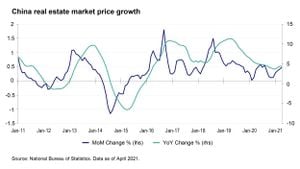New Delhi: The political atmosphere heating up as the November assembly elections approach, the Election Commission of India (ECI) is making headlines for its decision to screen the personal belongings of political leaders during campaign activities. A recent incident involving Uddhav Thackeray, the chief of Shiv Sena (UBT), raised eyebrows when his bag was checked by election officials upon his arrival in Yavatmal, Maharashtra. This act has ignited discussions about fairness and scrutiny within the electoral process.
Thackeray’s inquiry about whether the bags of prominent leaders, including Prime Minister Narendra Modi and BJP president J.P. Nadda, would also face similar scrutiny highlights concerns over perceived governance and accountability. According to sources from the ECI, the inspections of bags, aircraft, and helicopters of top political figures are standard operating procedures (SOPs) instituted to maintain equality during elections. This practice aims to avoid any undue advantages and promote transparency, ensuring every candidate operates under the same set of rules.
Sources within the Commission clarified after Thackeray's comments, stating, "There are strict SOPs followed by enforcement agencies for a level playing field." This statement emphasizes the protocol's relevance, especially during high-stakes election periods, where even the minutest details can deeply influence the overall integrity of the voting process. The ECI has been proactive; similar checks were previously conducted during last year's elections, where Nadda and Shah’s aircraft were also subjected to inspections.
Specifically referencing their past experiences, officials noted, “Helicopters were checked during Bihar’s 2024 elections, where Nadda was monitored on April 24, and Shah was verified one day earlier.” These operations align with Chief Election Commissioner Rajiv Kumar’s earlier declarations concerning ensuring justified conditions for all candidates. The efforts to uphold accountability come as part of the commission's push for fair play, especially when the allegations of bias arise from opposition camps.
Election officials argue these checks are applied uniformly across all political entities to prevent any semblance of favoritism. The reactions from various political fronts, particularly from the Shiv Sena (UBT) camp, highlight the challenging balance the ECI must strike between maintaining order and managing the inherent emotional responses of party leaders. They claim the integrity of the electoral process is pivotal, as even allegedly routine checks can project partiality.
This focus on heightened scrutiny also corresponds with broader concerns across India’s political spectrum. With elevated emotional tensions, any moves toward regulation can stir dissent among party members who fear losing voter confidence. Thackeray's vocal objection to the inspections serves as a rallying point for those who believe the checks require greater transparency and perhaps reconsideration from the Election Commission to sustain public trust.
Former Maharashtra chief minister Thackeray’s spokesman echoed the sentiment, emphasizing, “While protocol is necessary, we must also acknowledge the optics of these actions. Who checks the checkers?” The implication here raises urgent questions about accountability throughout the electoral process, pushing for detailed examination above and beyond routine procedures.
When examining the situation surrounding the Election Commission, it’s important to note its fundamental role as the guardian of democracy at large. The Commission has continuously sought to define and outline its mandates in terms of electoral integrity. Enforcement actions, such as bag inspections, are framed as necessary practices to maintain this integrity and reinforce public confidence.
While the signs of dissent are evident, what remains is the ECI’s commitment to executing its responsibilities without bias. With the backdrop of complicated political climates across the states and various factions involved, the Commission's conduct remains under the public’s watchful eye. Political leaders across the spectrum begin their campaigns under this stringent umbrella of oversight, one which promises to redefine the conventions of electoral strategy as this process evolves.
With the campaigns heatedly kicking off, this nuanced dialogue opens up discussions not just about the practicalities of campaign processes but also larger philosophical debates surrounding power dynamics. Political parties must not only strategize their election bids but also navigate the efficacious imposition of regulations with consideration for the democratic values imperative to public governance.
The decisions made by the Election Commission, especially concerning enforcement directives such as inspecting the personal effects of candidates, could have significant repercussions. The objective must firmly remain on preserving voter trust and ensuring electoral fidelity, thereby reinforcing democratic institutions in India.
Moving forward, the political and civic communities will continue to anticipate how the Election Commission responds to such instances and recalibrates regulations as necessary. All eyes will be fixed on the elections, which wield the potential to redefine political standing at multiple levels.



